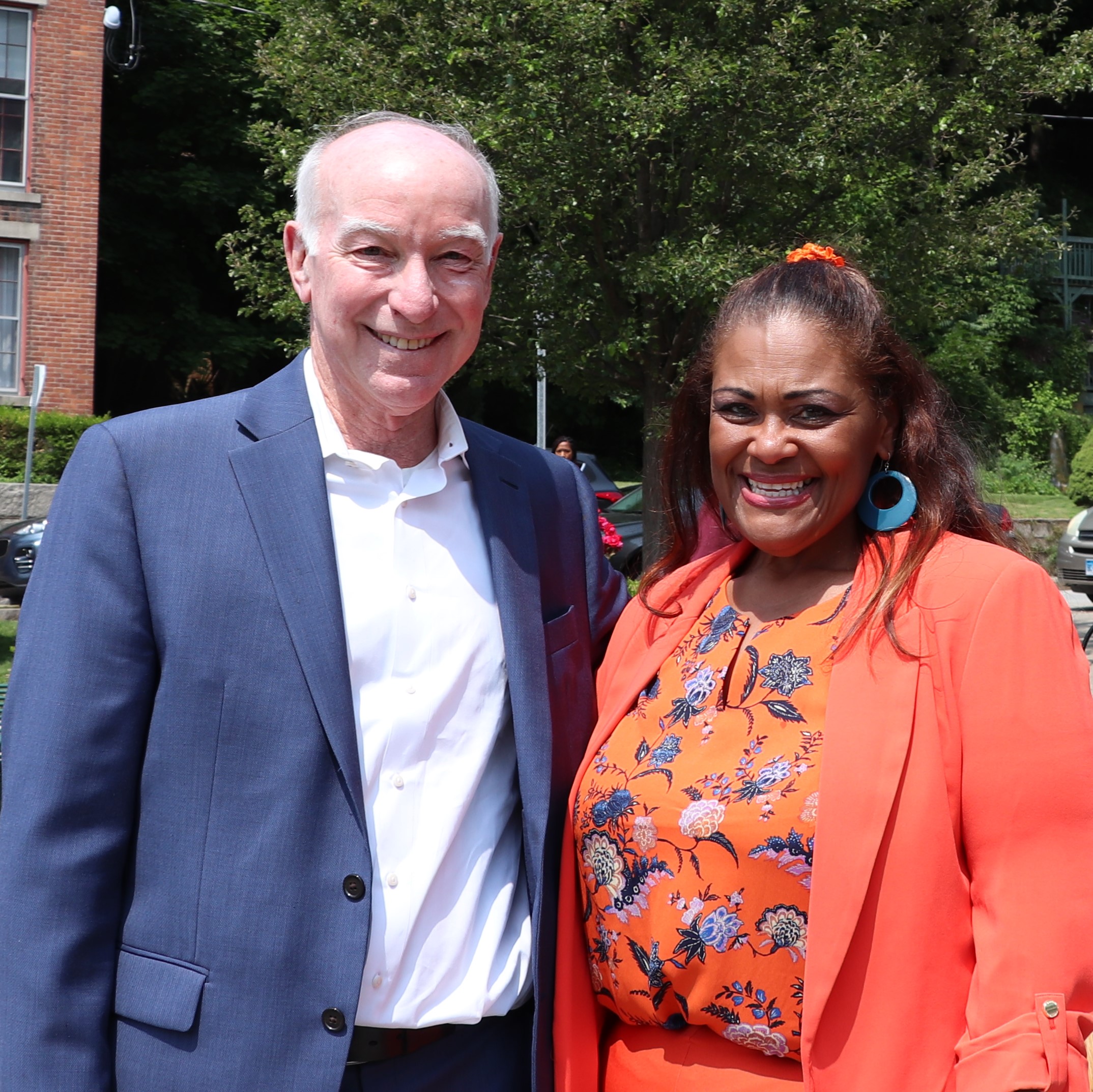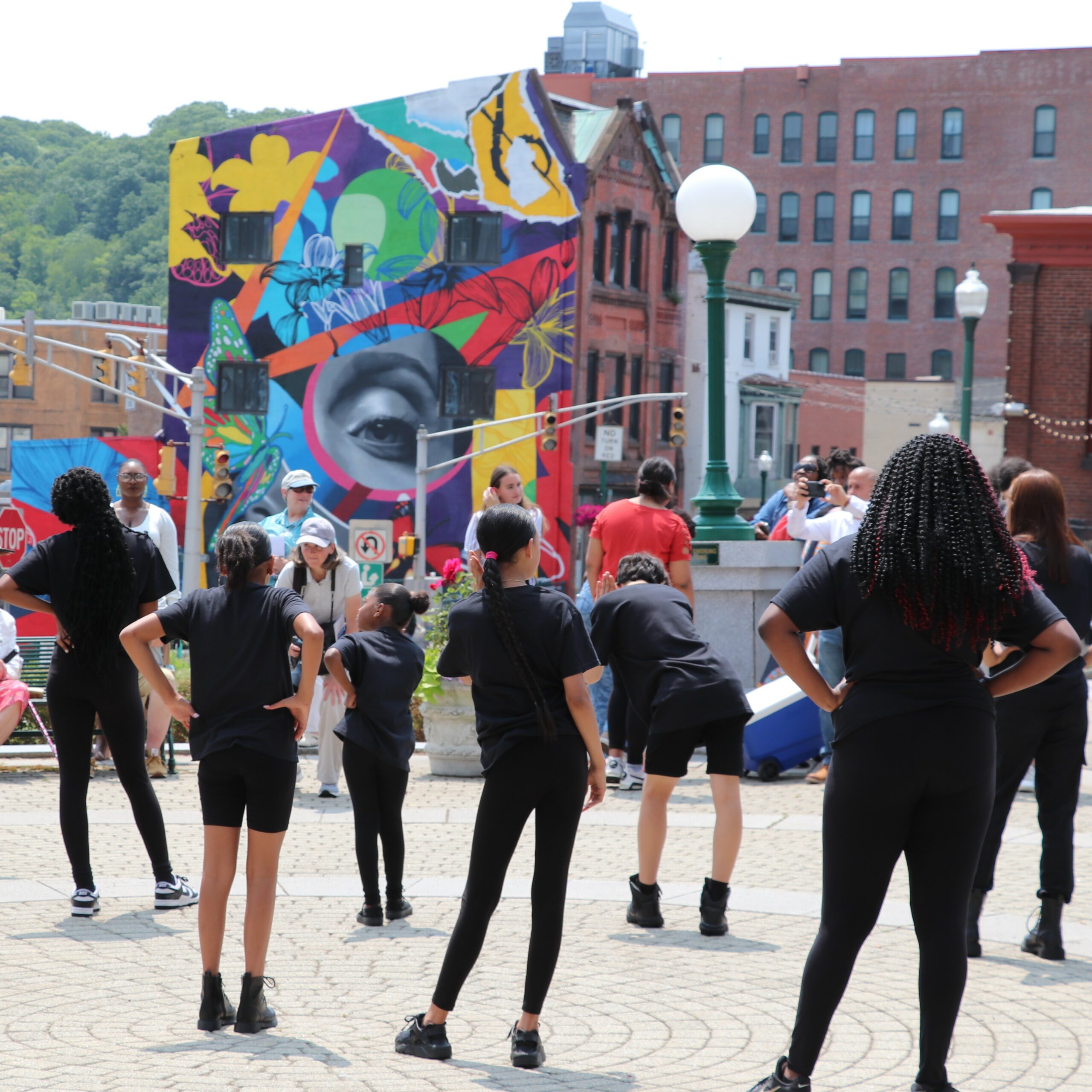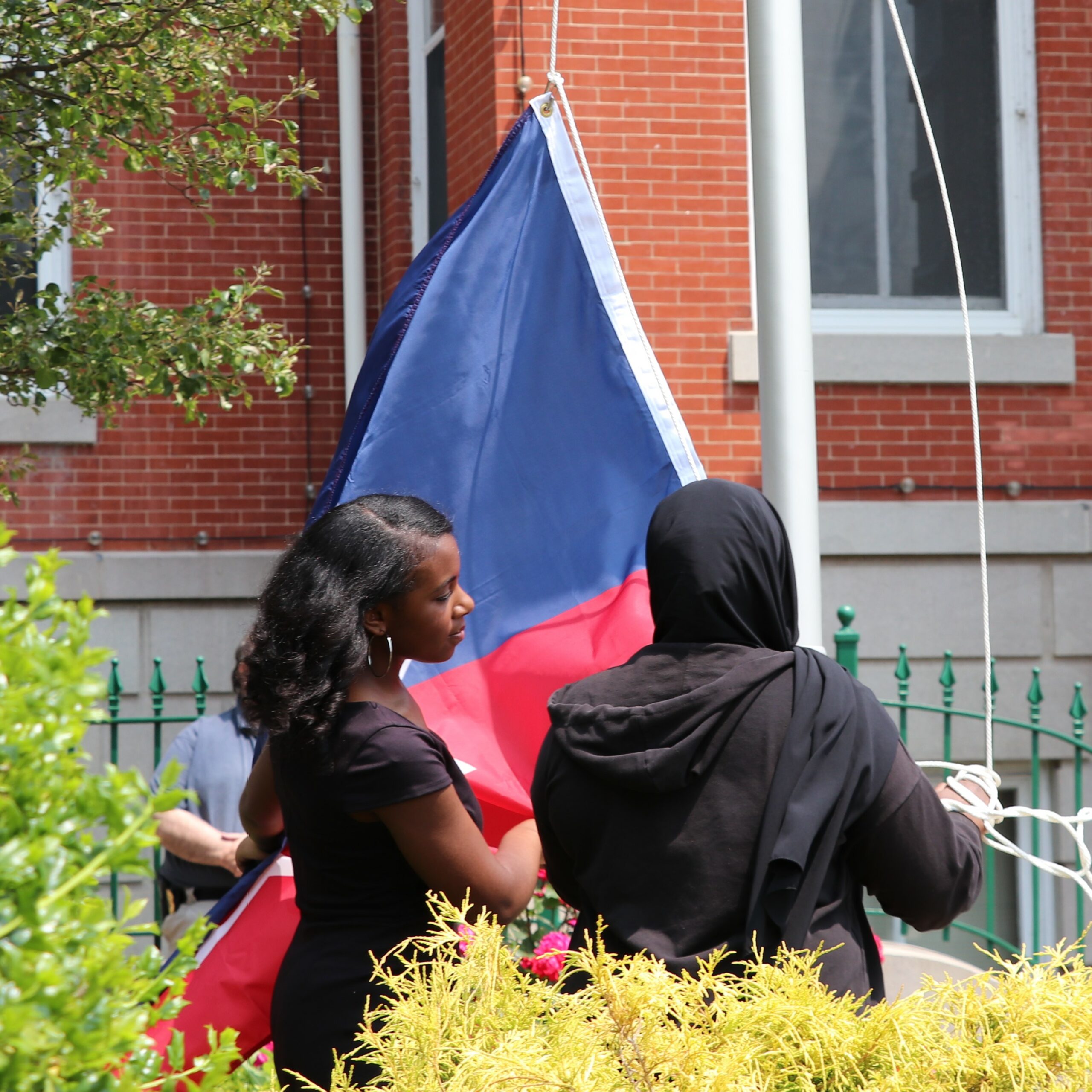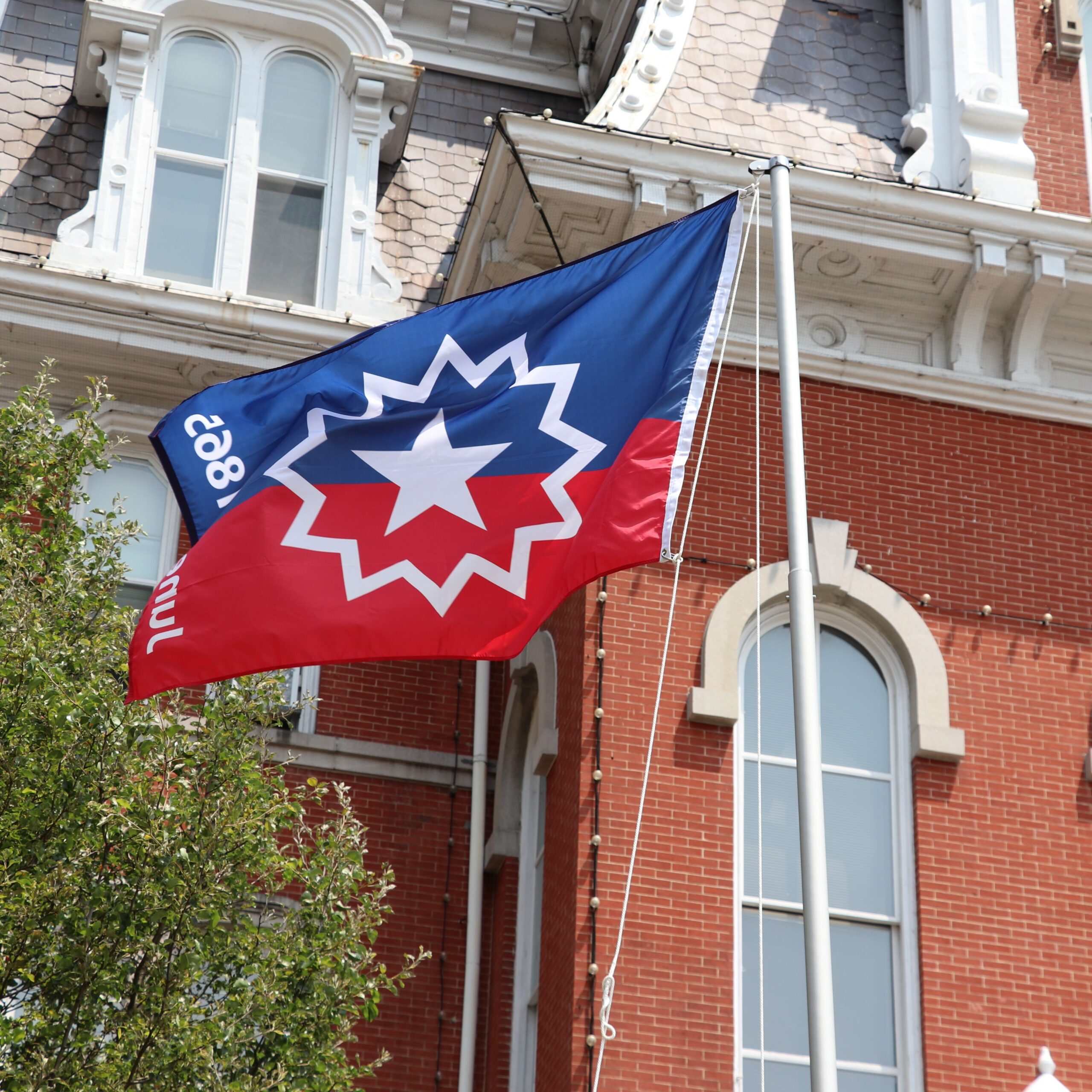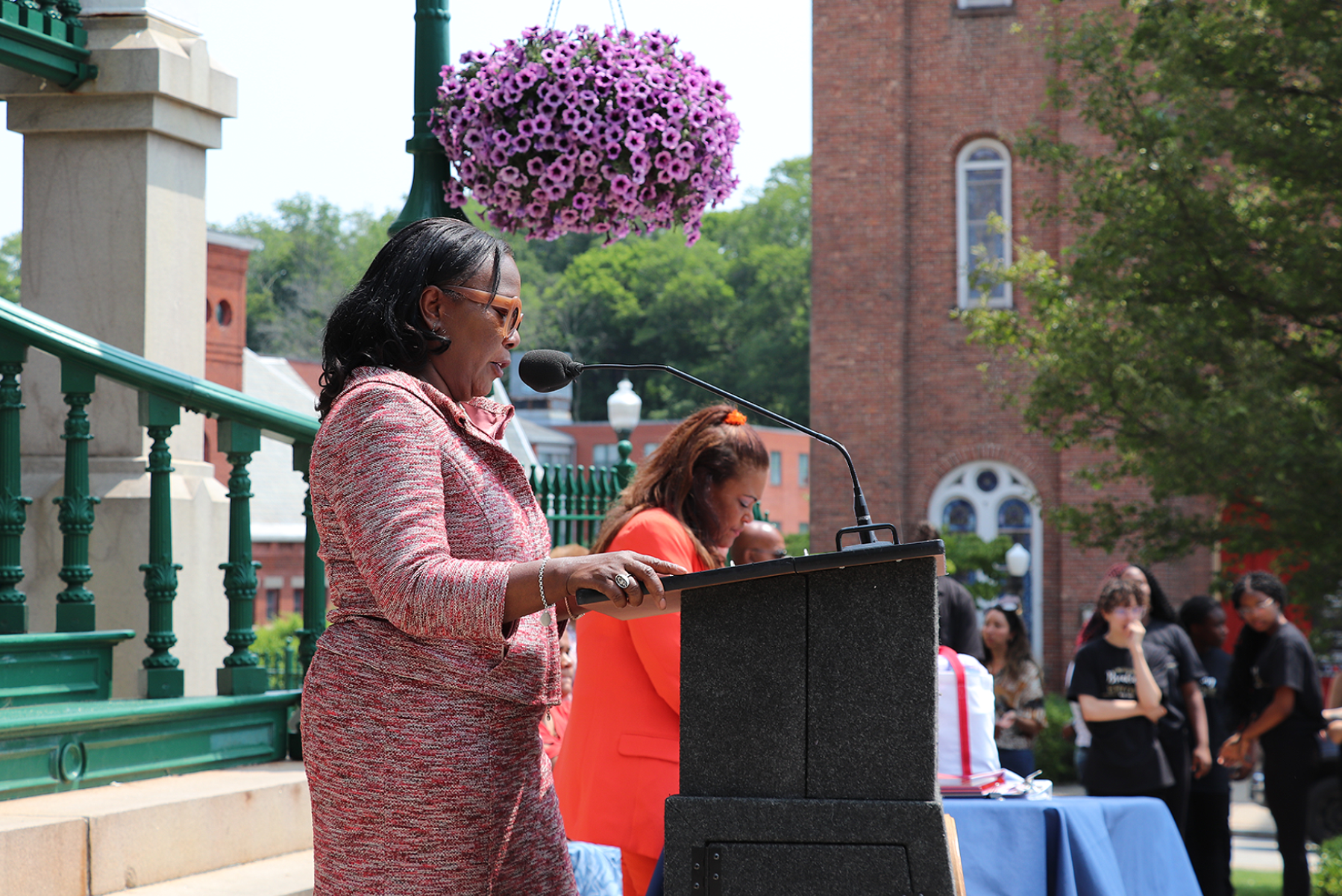Mitchell College President Tracy Y. Espy delivered the keynote address at the 34th Juneteenth Commemoration Ceremony and Flag Raising in Norwich, Conn., which took place June 16 at the David Ruggles Freedom Courtyard at Norwich City Hall. The event was sponsored by the NAACP Norwich Branch and Global City Norwich.
Dr. Gizelle Tircuit, Mitchell College director of health and wellness, chaired and emceed the Juneteenth event, which included song, dance, an award presentation and remarks from Norwich Mayor Peter A. Nystrom, U.S. Rep. Joe Courtney and State Sen. Cathy Osten.
Juneteenth marks the date when the enslaved people in Texas were finally freed — June 19, 1865 —more than two years after President Lincoln signed the Emancipation Proclamation.
In her speech Dr. Espy reflected on the power of telling stories on this special day through the lens of the past, present and future. She said that through the simple act of acknowledging Juneteenth “we learn more about the origins of this holiday and the people whose lives were changed by it. It humanizes the experience of a people and the collective stories they share in view of their freedom.”
She talked about the stories of former slaves passed down through generations of family, “sacred connections to a time long ago,” that made the struggles of slavery real and “preserved the ‘truth’ of its culture” from one generation to the next.
Espy’s own family story, preserved through storytelling and other records in “a very old family Bible,” includes ancestor Darby Willis, an enslaved man who was purchased in Virginia and taken to Alabama.
“He was a driver, minister and ultimately founder of a church in Gallion, Alabama,” Espy said. “Darby Willis passed away one year after slaves were released from Texas, in 1866. His children and many descendants thereafter would taste freedom in ways he did not,” she said.
As a graduate student Espy did more research into her family’s rich history and gained more insight.
“It would be years, and tears, to bring me to a place of true acknowledgment, gratitude and acceptance of this glorious history that is mine and that of my family…and it exposed the stories of so many others who were marginalized or displaced for reasons beyond their control. This knowledge of these collective stories became a force in opening my eyes and heart to the human nature of pain and suffering. The stories became more real, more painful and more meaningful.”
Growing up in the South in the 1970s and 1980s, Espy said there was “an ‘air’ of freedom…from the good work of the Civil Rights movement” and “the physical manifestations of a ‘free’ and open society to ‘people of color,’ even a brown girl like me, were visible to the naked eye, but lurking just below the surface were clear undertones of systemic racism and oppression.”
Espy said her “ancestral stories are my super power” and that she “held both the story of my late ancestors and the realities of my present story as critical to who I was during that point in my life, with the hopes of what I would become in the future.”
“Each of us, whether our ancestors were enslaved or free, have a story to tell that celebrates the spirit of our humanness,” she said.
